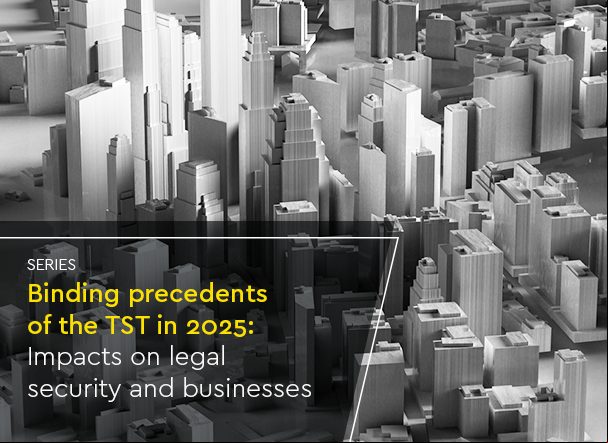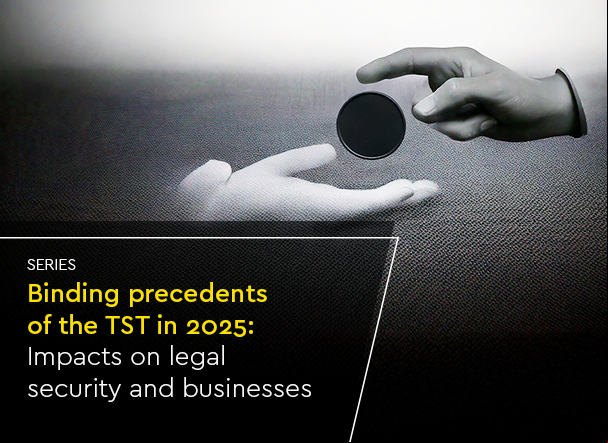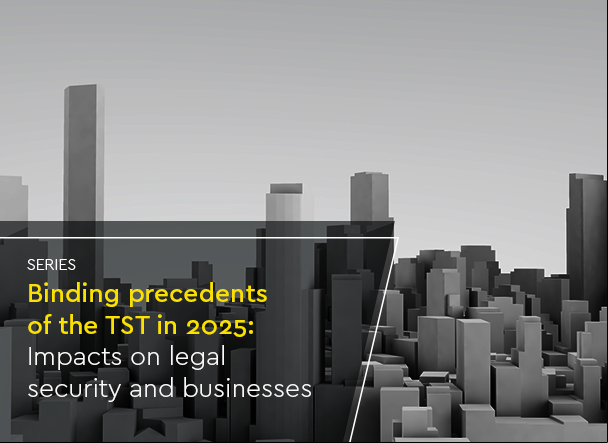
Over the past months, due to the discussions led by the Federation of Commerce of Goods, Services and Tourism of the State of São Paulo (FecomercioSP), the Ministry of Labor and Employment (MTE) was considering postponing the effective date of the...

The 2017 labor reform introduced Chapter III-A into the Consolidation of Labor Laws (CLT), establishing rules for voluntary jurisdiction proceedings for the approval of out-of-court settlements. Since then, both workers and employers have used this...

On February 24, the Brazilian Superior Labor Court (TST) confirmed that it is possible to search employees' belongings. This was established during the judgment of an Incident of Repetitive Appeals (IRR) – which extends the decision to all cases...

Continuing our series on binding precedents of the Brazilian Superior Labor Court (TST) in 2025, today we discuss the validity of court fees and appeal deposits paid by third parties unrelated to the lawsuit, as has ed the time when, to file an...

The discussion related to the direct payment of FGTS to employees has barely been standardized by the Brazilian Superior Labor Court (TST) and is already subject of controversy. Some point out that the binding precedent consolidated by the TST on...

The Salary and Remuneration Criteria Transparency Law (Law 14,611/23) stipulates that companies with 100 or more employees must publish their Salary and Remuneration Criteria Transparency Reports every six months. Since the law came into force in...

The year 2024 was marked by important decisions by the Federal Supreme Court (STF), the Superior Court of Justice (STJ), and the Superior Labor Court (TST), which promise to influence the ways in which companies hire, their decisions and practices...

The impossibility of terminating the employment contracts of employees who have retired due to disability has proved to be a major challenge for many companies, as they are forced to keep the contract suspended without the employee providing...

The year 2025 begins with some important changes for the insurance and reinsurance industry and especially for the legal and human resources departments of institutions in this sector: at the end of December 2024, the National Council of Private...

Yesterday we published an article in which we analyzed why, in our opinion, the methodology used by the Ministry of Labor (MTE) to prepare salary transparency reports does not allow the Salary Transparency and Compensation Criteria Law (Law...

When the Salary Transparency and Compensation Criteria Law (Law 14,611/23) was published, there were great expectations about the positive effects it would have on making society more gender-equal. It was hoped that the new rule would help to...

The structuring of positions and the classification of employees as holders of positions of trust, in addition to typical management positions, has proved to be a challenge for many companies. One of the most critical points is how to reduce the...

Previously seen much more frequently in publicly traded companies and start-ups, stock option plans (SOPs) have been used much less in recent years. The reason? Lack of legal certainty. The last decade has been marked by various clashes between...

The validity of a collective bargaining agreement that establishes an offsetting arrangement for work in a hazardous activity, even without prior inspection by the competent body, is a well-known debate in the industry. It's no wonder, since the...

According to news published on the website of the Ministry of Labor and Employment (MTE), the Permanent t Tripartite Committee (CTPP) held a special meeting on July 30 and approved the updating of MTE Regulatory Standard No. 1 (NR-01). The...

Due to the Salary Transparency and Remuneration Criteria Law (Law 14,611/23), companies with 100 or more employees are obliged to publish their salary and remuneration criteria transparency reports every six months. The deadline for publication of...

The applicability and sovereignty of collective bargaining agreements were examined by the Brazilian Supreme Court (STF) under general repercussion, Theme Theme 1.046. In the decision, the constitutionality of collective bargaining agreements that...

The Electronic Judicial Domicile (DJE) is a 100% digital, free solution and an integral part of the Justice 4.0 Program, which aims to provide everyone with faster and more practical access to the services of the Judiciary. The DJE centralizes all...

The registration and use of the Electronic Labor Domicile (DET) have been mandatory since March 1st of this year for some companies, bringing new challenges and obligations that can be complex. To facilitate the adaptation to the new process, our...

With the declaration of a state of public calamity by the government of Rio Grande do Sul and the National Congress due to the heavy rains in the state, local employers were expecting the Ministry of Labor and Employment (MTE) to implement...